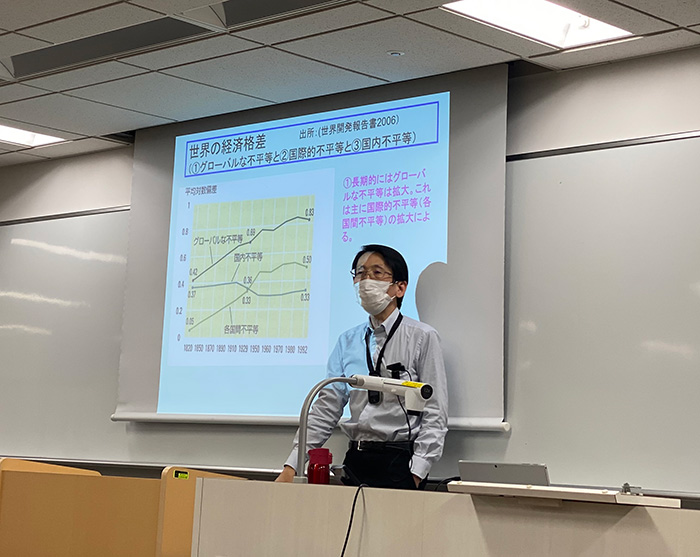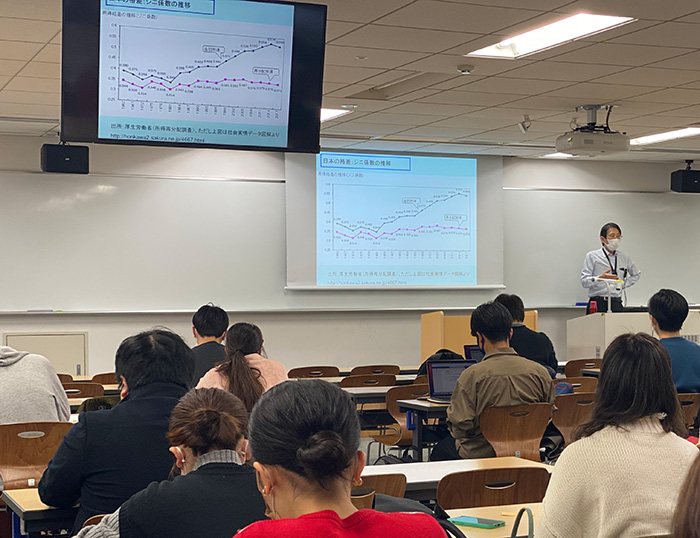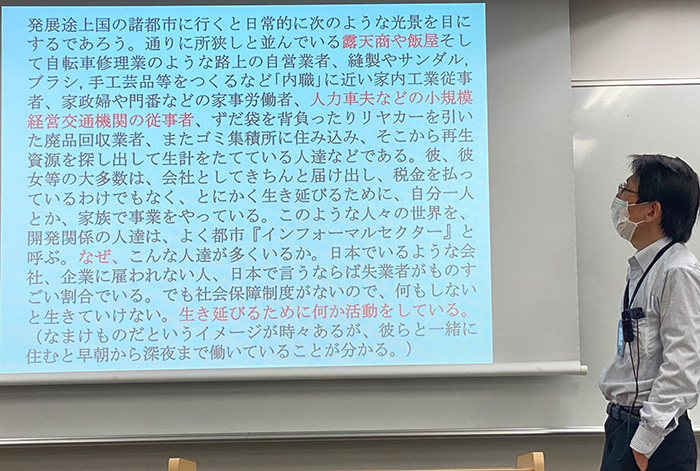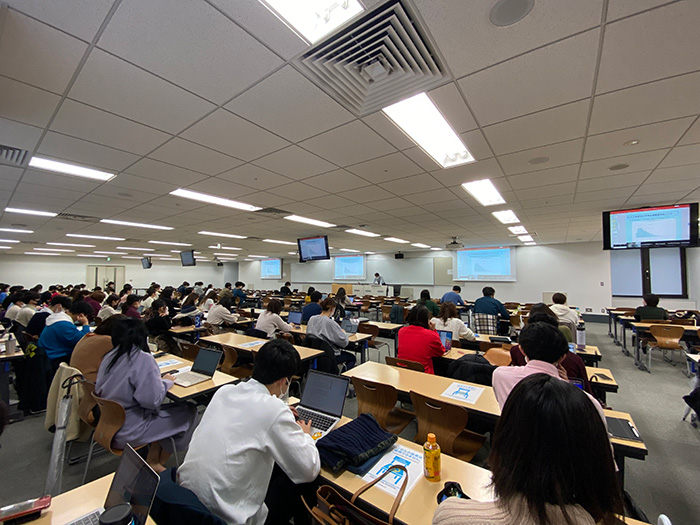Class Introduction:International Political Economy (Economic Approach) 2
Comment from Professor:
Despite the significant amount of international cooperation and aid that has taken place to date, 73% of the world's population is still forced to live on less than 50,000 yen per month. Moreover, this number has been steadily increasing over the past 20 years. Furthermore, the gap between wealthy and poor countries continues to widen, and the number of impoverished people in developed countries has also surged in recent years. Why is that? Are international efforts and cooperation, such as the SDGs, completely meaningless?
In this course, I hope to explore with you the issues of poverty and inequality which are of particular interest to me among the various international political and economic problems, and how impoverished people can advance themselves.

Amartya Sen (winner of the 1998 Nobel Prize in Economics) argues that “poverty is not merely a state with low income but a condition of being deprived of liberty, and that development is the process by which the poor regain their freedoms.” This perspective offers a significant hint.
We tend to think about international cooperation and aid from the perspective of outsiders, such as those from developed countries or aid providers. However, it is crucial to consider it from the perspective of the impoverished individuals themselves. When viewed from the perspective of the poor, the same reality looks entirely different. For example, while slums may be perceived as a problem that needs to be solved by outsiders, to the residents of the slums, they are a step towards a solution since they migrate to cities as they cannot survive in the devastated rural areas and group together in slums for mutual support.
Rather than focusing on the notion of slums as miserable, I would like to share stories of the various creative efforts and independent initiatives of the people in the slums and the message that there is light and potential in these areas. I believe that there are lessons here that even developed countries should learn.

Class Interview
In this course, themes of “poverty” are explored. Generally, economic principles accept some degree of inequality as inevitable, but this class investigates why modern disparities are excessively severe by studying various theories. Throughout the course, I have come to realize that inequality is no longer solely an issue for developing nations but a serious and ongoing global problem, including in Japan.
After taking the professor's “Economic Approach 1” course I developed a keen interest in economics leading me to enroll in this subsequent class without hesitation. Additionally, through teacher training courses, I gained an interest in educational disparity and child poverty so I had hoped that this lecture could also help identify the causes of these issues.
The biggest problem of poverty is not the financial hardship we imagine. Through this course I have realized that poverty deprives individuals of the freedom of choice and hence their abilities are not utilized which eventually leads to the decline of society as a whole. Additionally, I found it very interesting to hear about the professor's interactions in the slums and episodes with the locals.
Taking this course itself makes me realize how privileged I am. I earnestly wish to use this fortunate opportunity not only for myself but also for others in order to realize the school's motto, “For others, with others.”
(Sao Shirotani, Second-year, Faculty of Global Studies)

In this course, we are mainly learning about “poverty”. We have learned that poverty does not simply mean the lack of money, what kind of approach is necessary to tackle poverty. and how we should evaluate the data released by the United Nations or the World Bank.
When I used to think about economics, I thought it was a field of study for people who wanted to make money. However, when I read the syllabus for this course, it said that we could learn an overview of the poverty issue in developing countries from the perspective of the poor. As someone interested in poverty and development, I decided that this was a field I should study, so I decided to take this course.
One of the attractions of this course is that the instructor explains points that other students have questioned and left in their comment papers at the beginning of the next class, thus addressing points that I would not have considered on my own. Moreover, it is also an attraction that the instructor, who has experience seeing the reality of developing countries, explains the figures released by the UN and the World Bank from a critical perspective.
Next year, I will be studying economics in Professor Shimokawa's seminar. The theme of my graduation thesis has not yet been decided definitively, but I would like to study and
discuss poverty and development in Africa, which is the region of my interest, and at the same time, I want to have an attitude of understanding towards the current situation without blindly accepting the figures.
No matter what period you enter into FGS Studies, I strongly recommend taking the course to understand the current state of the world.
(Yuka Wada, Second-year, Faculty of Global Studies)

